In This Section
IRC New Foundations Grant Awardees 2020
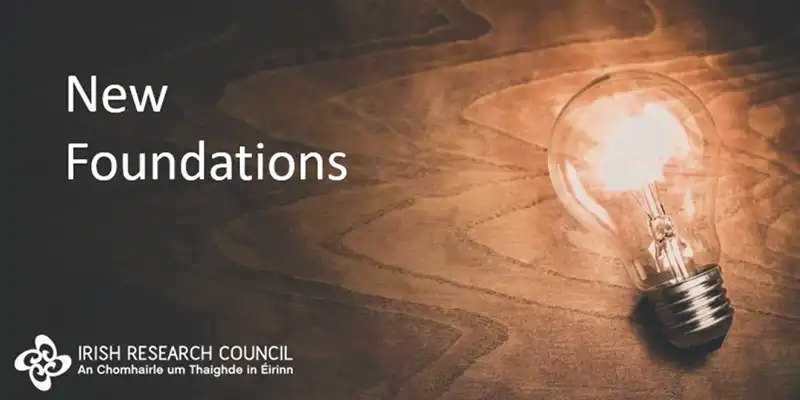
Read about the projects in the College of Arts, Celtic Studies and Social Sciences that received Irish Research Council funding in 2020
Decolonizing Irish Public Heritage
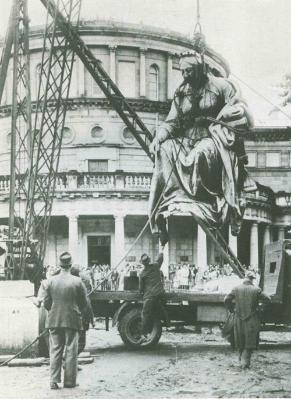 Dr Donal Hassett (School of Languages, Literatures and Cultures has has received funding from the IRC’s New Foundation 2019 call for the project Decolonizing Irish Public Heritage.
Dr Donal Hassett (School of Languages, Literatures and Cultures has has received funding from the IRC’s New Foundation 2019 call for the project Decolonizing Irish Public Heritage.
The last decade has seen the escalation of the so-called ‘memory wars’ over the representation of colonial and imperial pasts across the Global North. These debates were driven by coalitions of activists and academics who identified public heritage sites as crucial spaces for the reproduction and perpetuation of hegemonic (neo-)colonial discourses. In their efforts to challenge the exclusionary narratives of past and present promoted by certain forms of public heritage, the supporters of decolonization have developed both theory and praxis that have the potential to radically change the way we think about heritage in Ireland.
Ireland’s status as a former colony has meant that it has rarely featured in discussions of the inherent coloniality of public heritage in the Global North. And yet, the museum collections, the stately homes, and the civic buildings the new state inherited from its former colonial rulers were, in part, the products of the exploitation not just of Ireland but also of colonies throughout the British and other Empires. The uneven efforts of local and national authorities in post-independence Ireland to remove the most blatant symbols of the former colonial masters resulted in a very limited decolonization of the Irish public space. It also largely ignored the ways in which the participation of thousands of Irishmen and women in the administration, spoliation, and oppression of other colonial territories has always shaped public heritage in Ireland. This project, by bringing researchers, activists and heritage professionals together to reconsider Irish public heritage, past and present, through the lens of contemporary debates about cultural decolonization, can help forge a cultural policy that better reflects the new multicultural Ireland.
Elderly (non)migrants’ narratives of home: A comparative study of place-making in Ireland and Slovakia (EMNaH)
Migrant home-making is a vital component of integration and the sense of belonging to host countries. Most studies conducted about migrant home-making have focused on experiences of adult migrants. EMNaH takes a novel approach to include a group of participants, 65+ year-old (non)migrant female/male whose experiences have been greatly neglected within research on home, migration and place-making as well as in current migrant integration policies across Europe. EMNaH aims to provide an understanding into how demographic and geographic changes in neighborhoods are experienced and narrated by older people who live in care homes. Focused on the importance of memory, the project employ participatory methods such as mapping and photo-elicited interviews in two care homes in Ireland and Slovakia. The project will develop new theories and methodologies on researching with older generations of migrants and non-migrant citizens. This project is funded by Irish Research Council New Foundations programme (2020-2021) and is led by Dr Mastoureh Fathi, at Institute for Social Science Research in 21st Century (ISS21).
EMBRACE - Exploring Mobility: Borders Refugees and Challenging Exclusion
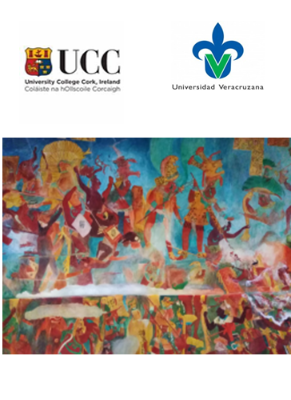 Dr Clare Dorrity (School of Applied Social Studies and ISS21) has received funding from the IRC’s New Foundation 2019 call for the project EMBRACE Exploring Mobility: Borders Refugees and Challenging Exclusion.
Dr Clare Dorrity (School of Applied Social Studies and ISS21) has received funding from the IRC’s New Foundation 2019 call for the project EMBRACE Exploring Mobility: Borders Refugees and Challenging Exclusion.
This research project aims to explore migration and border securitisation through knowledge exchange between the University College Cork (UCC) and the University of Veracruz (UV), Mexico. Migration is an integral part of UV’s research agenda and as such, it is considered an important site for expanding migration networks and developing and consolidating a platform for engaged research between the ISS21 Migration and Integration Research Cluster, UCC and the Institute of Historical and Social Research (UV). This research project is twofold: first, it will focus on exploring border securitisation practices from a comparative perspective, focusing specifically on the framing of borders and second, it will explore local responses to protecting asylum seekers, refugees, and returned migrants. Within this framework knowledge sharing and data gathering on best practice will be explored drawing specifically on what can be learned from local migrant community projects engaging directly with universities. The expected outputs include consolidating the research network, the publication of a joint research paper between migration experts in UCC and UV, and a follow up research seminar in UCC jointly hosted (virtually) with UV and migration experts in Ireland to disseminate the research.
Funding Success for Dr Joanna Hofer-Robinson
Department of English Lecturer, Joanna Hofer-Robinson, has been awarded three prestigous grants for upcoming projects.
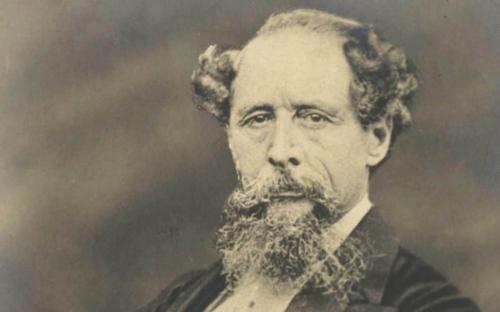 She received the IRC New Foundations Award for a project entitled Breaking the Network: Cultural Fracture and Community Segmentation. The award funds a two-day interdisciplinary symposium that builds toward a new theoretical framework for conceptualising the coexistence of social fragmentation with shared economies, communities, and spaces.
She received the IRC New Foundations Award for a project entitled Breaking the Network: Cultural Fracture and Community Segmentation. The award funds a two-day interdisciplinary symposium that builds toward a new theoretical framework for conceptualising the coexistence of social fragmentation with shared economies, communities, and spaces.
She has also received the Huntington Library Short-Term Fellowship for a project entitled Unsung and Unstaged: The Plays of Charles Dickens. The fellowship funds primary research to enrich a pioneering new edition of Charles Dickens’ plays, co-edited with Dr Peter Orford (The University of Buckingham, UK). This new edition of five plays by Dickens, written between 1836 and 1851, makes three significant interventions to encourage further research in the field:
Lastly, Dr Hofer-Robinson has also been awarded British Academy Seed Funding (BA/RIA Knowledge Frontiers) for a project entitled (Non)Spectacular Infrastructure: Enacting Resource Circulation in Stages, Studios and Communities. The award funds a two-day workshop which brings together scholars working in fields of film, literary and theatre studies and human geography, for interdisciplinary knowledge exchange and collaborative practice-led research. This workshop will focus on a particular aesthetic characteristic of infrastructures: how they alternate between mundane invisibility and spectacular foregrounding. This is a collaborative project with Dr Jeremy Brice (Economy, Risk & Society, LSE) and Dr Adam O’Brien (Film Studies, University of Reading).
Dr. Clíona O’Carroll (Department of Folklore) received an IRC New Foundations grant
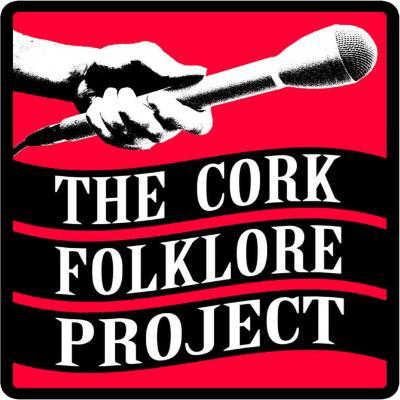 Clíona O’Carroll, Research Director with the Cork Folklore Project and Lecturer with Béaloideas/Folklore and Ethnology, UCC, has received an IRC New Foundations grant for the project ‘Oral Testimony, Infectious Disease and Vaccination’. The STEAM award, which supports innovations in the communication of science and knowledge, is supporting the Cork Folklore Project’s investigation into the value of oral history in health research and public health initiatives, in this case in the area of experiences of infectious diseases and vaccination.
Clíona O’Carroll, Research Director with the Cork Folklore Project and Lecturer with Béaloideas/Folklore and Ethnology, UCC, has received an IRC New Foundations grant for the project ‘Oral Testimony, Infectious Disease and Vaccination’. The STEAM award, which supports innovations in the communication of science and knowledge, is supporting the Cork Folklore Project’s investigation into the value of oral history in health research and public health initiatives, in this case in the area of experiences of infectious diseases and vaccination.
This project will use the cultural heritage online archival database and exhibition platform
Omeka to create a pilot dissemination website where narratives of infectious diseases such as measles and polio can be shared in compelling oral or textual testimony. This testimony will be accompanied by text transcriptions, images, links to the interview metadata in the Cork Folklore Project’s collection catalogue, and text/audio narratives by immunologist Dr. Elizabeth Brint (Pathology, University College Cork), contextualizing the diseases in question in terms of their short and long-term effects on health, and the history and implications of vaccine implementation. The database will be designed for use by the public, by the Cork Folklore Project, and by public health educators.
Changes brought about by the advent of the COVID-19 pandemic foreground the relevance and the potential applications of this project, and it dovetails significantly with the Cork Folklore Project’s ongoing ‘Chronicles of COVID-19’ collection project, where accounts of everyday experience of the current pandemic include recall of testimony regarding past epidemics and experience of infectious diseases.
Dr Catherine Forde from the School of Applied Social Studies awarded an IRC New Foundations grant
Dr Catherine Forde will spend time as a visiting scholar at the Department of Public Governance, Management and Public Finance at the University of Ghent and to meet scholars from other Belgian universities including KU Leuven and Radboud University. She will engage with leading international scholars in Participatory Governance, a field of political science which is concerned with citizen involvement in political decision-making and policy-making. Professor Bram Verschuere from the University of Ghent will make a return visit to UCC in 2021.
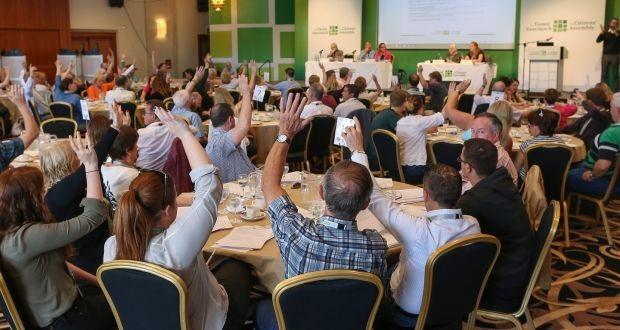 From 2017 to 2019 Catherine undertook an IRC-funded Research for Policy and Society project which explored citizen and stakeholder participation in local Participatory Governance in Ireland. She will speak to staff and students of Ghent University about her research findings and their implications for the evolution of Participatory Governance in Ireland. The exchange visits will enable the development of research synergies between University College Cork, the University of Ghent and other Belgian universities.
From 2017 to 2019 Catherine undertook an IRC-funded Research for Policy and Society project which explored citizen and stakeholder participation in local Participatory Governance in Ireland. She will speak to staff and students of Ghent University about her research findings and their implications for the evolution of Participatory Governance in Ireland. The exchange visits will enable the development of research synergies between University College Cork, the University of Ghent and other Belgian universities.
In 2020 Catherine and UK colleagues were awarded funding by Manchester Metropolitan University to engage in the development of a Participatory Governance research network with scholars from the UK, Germany, Italy, Finland and Australia. The network will enable the development of comparative research work between these countries, the development of joint funding bids and research and academic engagement between UCC and other international universities.
Dr. Ken Ó Donnchú, lecturer in the Department of Modern Irish, has received an IRC New Foundations Award
 Dr. Ken Ó Donnchú, lecturer in the Department of Modern Irish, has received an IRC New Foundations Award to support his research on Irish literary translation. The award funds a bilingual international conference that will take place in UCC in May 2021. Tintúd – Aistriú: Irish Literary Translation through Time will create a space for much-needed discussion and re-analysis of the scholarly consensus on Irish literary translation.
Dr. Ken Ó Donnchú, lecturer in the Department of Modern Irish, has received an IRC New Foundations Award to support his research on Irish literary translation. The award funds a bilingual international conference that will take place in UCC in May 2021. Tintúd – Aistriú: Irish Literary Translation through Time will create a space for much-needed discussion and re-analysis of the scholarly consensus on Irish literary translation.
Throughout recorded history, translation has been one of the natural mechanisms through which Ireland maintained a place in European civilization that belied its peripheral geographical location. In the modern era, the practice of translation has continued, with the added feature of the translation of Gaelic material into other languages, as international appreciation of Gaelic literary creativity grows. Recent translations by UCC scholars highlight the vitality of Irish as both source and target language. These include Emeritus Professor Alan Titley’s The Dirty Dust, a translation of Máirtín Ó Cadhain’s masterpiece Cré na Cille, and Dr. Ailbhe Ní Ghearbhuigh’s Irish renderings of the Egyptian Francophone poet Andrée Chedid.
Currently Dr. Ó Donnchú is editing the sole surviving pre-20th century secular translations from Spanish into Irish, those of the prolific if elusive Fr. Maghnus Ó Domhnaill, active at the close of the 17th century. Research on these, and other exciting aspects of Irish literary translation, such as the award-winning Czech translations of Ó Cadhain, Pádraic Ó Conaire, Liam Ó Flaithearta, Séamus Ó Grianna and others will be presented at Tintúd – Aistriú.
College of Arts, Celtic Studies & Social Sciences
Coláiste na nEalaíon, an Léinn Cheiltigh agus na nEolaíochtaí Sóisialta
Contact us
College Office, Room G31 ,Ground Floor, Block B, O'Rahilly Building, UCC
